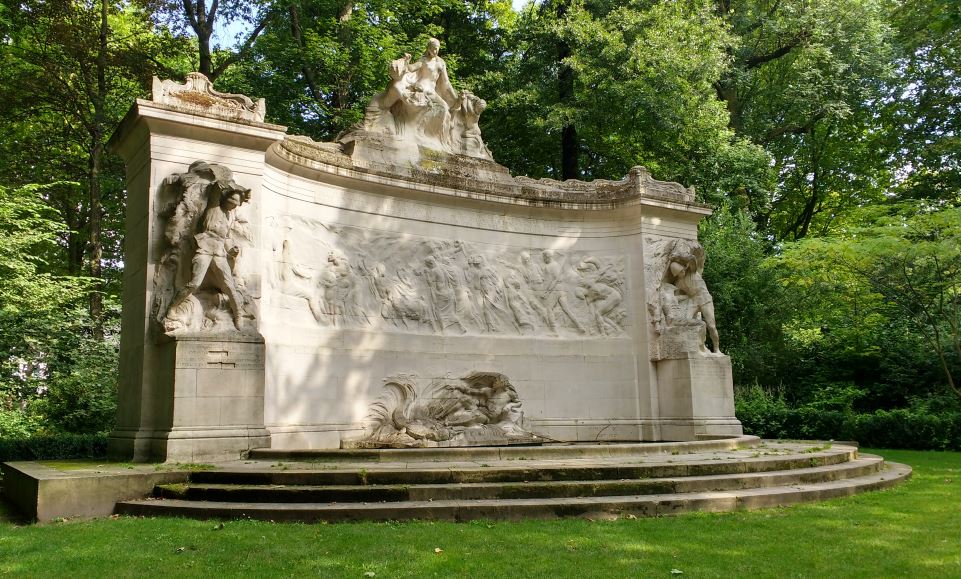The far-right party Vlaams Belang has "restored" the Congo monument in the Brussels' Parc du Cinquantenaire, by re-adding the French and Dutch version of the word "arab."
During a symbolic action on Thursday morning, Vlaams Belang senator Bob De Brabandere and MP Dries Van Langenhove placed the words ‘Arabisch’ and ‘arabe’ (Dutch and French for 'Arab') back on the monument in the Brussels' park.
They did this to protest against what they call "the current iconoclasm and apology cult."
The party considers it a double standard that apologies are being asked today for what has been done in the distant past, "while at the same time remaining silent about the crimes that are still going on today," they said in a press release.
The monument originally read "L’héroïsme militaire belge anéantit l’arabe esclavagiste / De Belgische militaire heldenmoed verdelgt den Arabische slavendrijver” first in French, then in Dutch. (Translation: The Belgian military heroism exterminates the Arab slave-driver).
The word was initially removed in the 1980s, but it reappeared not long after. Since 2015, however, the word has disappeared definitively, because it was seen as hurtful to the entire Arab community in Brussels.
Related News
- Ixelles will remove bust of Leopold II's 'ruthless' colonial general
- 'First step': praise for King's letter to Congolese president
- Belgian king expresses 'deepest regrets' for colonial cruelties in Congo
This was "hypocritical," according to Vlaams Belang, since the Arab slave traders did play a historical role in the region until then. The party therefore symbolically placed the words back. "After all, if one type of crime requires an apology, why do we remove the other?"
Atrocities of the past should not be denied, but the "apology cult" and "thought police" should be stopped, according to De Brabandere.
Vlaams Belang's action comes days after King Philippe wrote a letter to Congolese President Félix Tshisekedi, in which he expressed his "deepest regrets" for the colonial cruelties that happened in Congo.
Maïthé Chini
The Brussels Times

